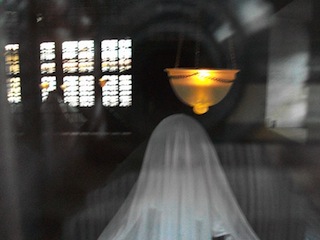Bartlett (1932)

Discuss/evaluate schema theory.
To what extent is one cognitive process reliable?
In addition, it could be used in the sociocultural approach to discuss how sociocultural factors may affect cognitive processes.
The original study is available here.
The aim of the study was to investigate how the memory of a story is affected by previous knowledge. He wanted to see if cultural background and unfamiliarity with a text would lead to distortion of memory when the story was recalled. Bartlett’s hypothesis was that memory is reconstructive and that people store and retrieve information according to expectations formed by cultural schemas.
Bartlett told participants a Native American legend called The War of the Ghosts. The participants in the study were British; for them, the story was filled with unknown names and concepts, and the manner in which the story was developed was also foreign to them. The story was therefore ideal to study how memory was reconstructed based on schema processing.
Bartlett allocated the participants to one of two conditions: one group was asked to use repeated reproduction, where participants heard the story and were told to reproduce it after a short time and then to do so again repeatedly over a period of days, weeks, months or years. The second group was told to use serial reproduction, in which they had to recall the story and repeat it to another person.
Bartlett found that there was no significant difference between the way that the groups recalled the story. Bartlett found that participants in both conditions changed the story as they tried to remember it - a process called distortion. Bartlett found that there were three patterns of distortion that took place. Assimilation: The story became more consistent with the participants’ own cultural expectations - that is, details were unconsciously changed to fit the norms of British culture. Leveling: The story also became shorter with each retelling as participants omitted information which was seen as not important. Sharpening: Participants also tended to change the order of the story in order to make sense of it using terms more familiar to the culture of the participants. They also added detail and/or emotions. The participants overall remembered the main themes in the story but changed the unfamiliar elements to match their own cultural expectations so that the story remained a coherent whole although changed.
Bartlett's study indicates that remembering is not a passive but rather an active process, where information is retrieved and changed to fit into existing schemas. This is done in order to create meaning in the incoming information. According to Bartlett, humans constantly search for meaning. Based on his research Bartlett formulated the theory of reconstructive memory. This means that memories are not copies of experiences but rather a reconstruction.
Bartlett's theory of reconstructive memory has several applications and explains many real-life situations. Thus, in spite of the fact it was carried out in a laboratory, it has high ecological validity.
The methodology was not rigorously controlled. Participants did not receive standardized instructions. There was no standardized time after which participants had to recall the story. He also did not tell his participants to be as accurate as possible.
Although there were two conditions, there was no difference in the performance of the two groups - in other words, the IV did not affect the DV. However, it appears that culture did affect how they recalled the story. But if we focus on how cultural schema affect the participants' memories, there are several limitations. When we consider culture the IV, then the study is quasi-experimental - that is, no independent variable was manipulated. Therefore, a cause and effect relationship cannot be established. Secondly, there was no control group. There was no group of Native Americans recalling the story to verify that, in fact, this distortion doesn't happen to people in that cultural group.

 IB Docs (2) Team
IB Docs (2) Team
